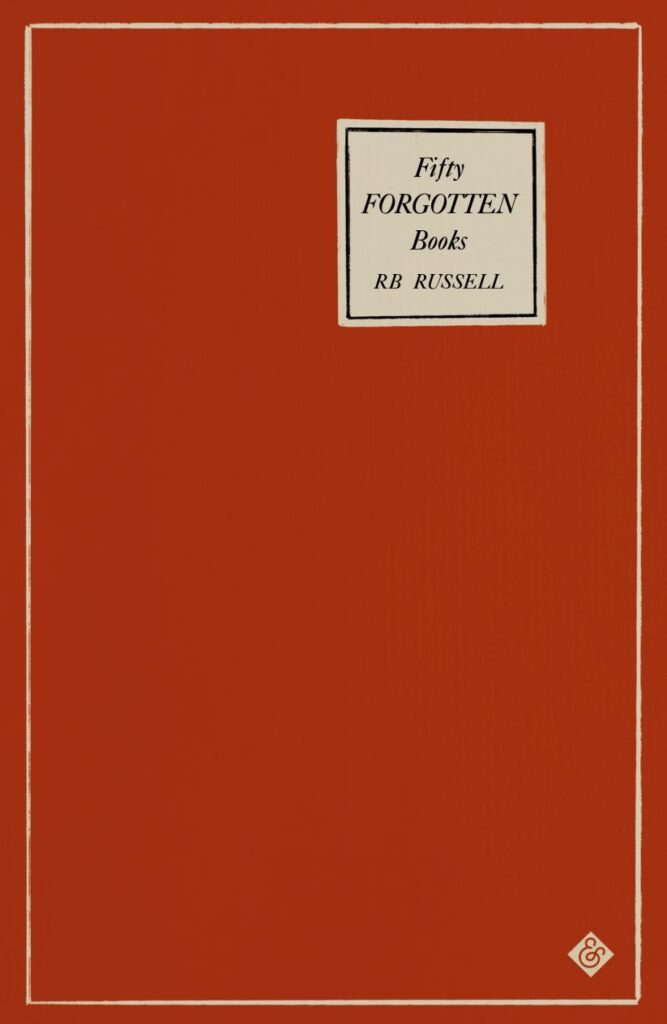
I was doing some holiday shopping a few weeks ago in Princeton’s Labyrinth Books when, on the new release table, something caught my eye. If you are reading this, you’re probably aware of the allure of a book titled Fifty Forgotten Books solely based on the title; the retro cover and blurbs on the back from the unlikely duo of Washington Post critic Michael Dirda and Current 93 mainstay David Tibet piqued my interest further.
The title of Fifty Forgotten Books gives a good sense of its structure: each of the chapters tells the story of a book that is, in some way, “forgotten” and which Russell has some connection to, whether as admirer or publisher (or both). It doesn’t hurt that some of the writers Russell is most enthusiastic about in these pages include Arthur Machen and Sylvia Townsend Warner, both of whom I’m also a dedicated reader. In his introduction, Russell observes that editor Jeremy M. Davies had originally approached him about writing a memoir of his life in books; this is the form that it ended up taking.
It’s worth pointing out, too, that — as Russell himself points out — the “forgotten” part of the title isn’t always accurate. Some of these books were, or have subsequently been, reissued as part of the Penguin Classics series. Others were published or reissued by Tartarus Press, the independent press that Russell and his partner Rosalie Parker have run since 1990, and to whom I will probably be sending a lot of money over the coming years.
André Gide, Robert Aickman, and Anna Kavan are among the writers whom Russell discusses over the course of this book. Over the course of its pages, Russell also gives a sense of his personal canon; he’ll sometimes make the case for a lesser-known book by a better-known author. If your tastes line up remotely with his — if you have a penchant for capital-w Weird fiction or enjoy the work being done by the likes of NYRB Classics, McNally Editions, and dorothy, a publishing project in reissuing underrated books, you’ll likely find plenty to savor here.
There’s an interesting turn late in the book in which Russell takes stock of some of his own selections. This is, as he writes in his introduction, both a guide to some under-read titles and a memoir of his own life in books, and there are a handful of moments in which that life lines up with moments in national or global history.
One such section finds Russell reckoning with calls for racial justice in the U.S. and U.K. and recognizing that his own history of reading has been, shall we say, less than diverse. “It caused me to question for the first time why so few books from non-white cultures had impinged on my reading experience over almost fifty years,” he writes of this moment in history, which makes for an especially candid moment in a book full of them.
That this is followed by an enthusiastic chapter dedicated to a lesser-known Richard Wright novel, The Outsider, suggests Russell is working to expand his horizons. As for Fifty Forgotten Books itself, the best compliment I can give to it was that I’d ordered a few of the titles Russell discusses herein before I’d even finished reading it, and am likely to venture into plenty more before the year is out.
***
Fifty Forgotten Books
by R.B. Russell
And Other Stories; 256 p.
Follow Vol. 1 Brooklyn on Twitter, Facebook, and sign up for our mailing list.
